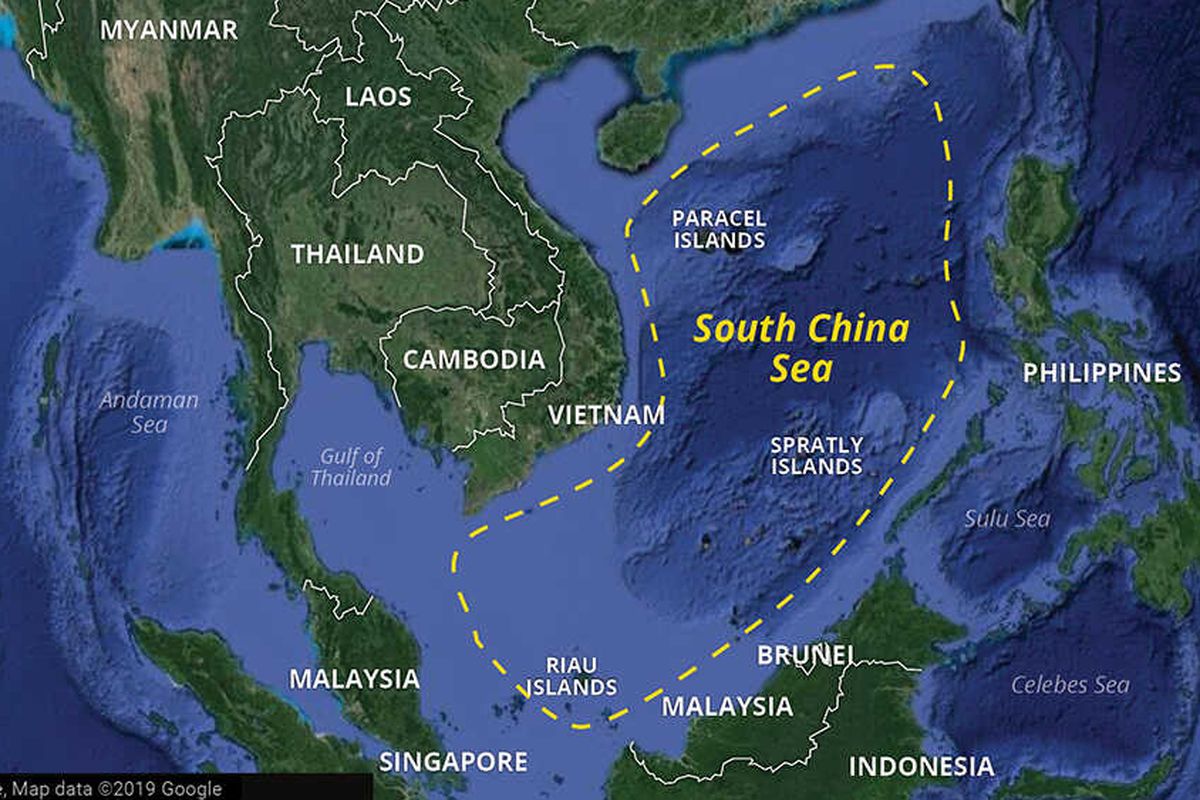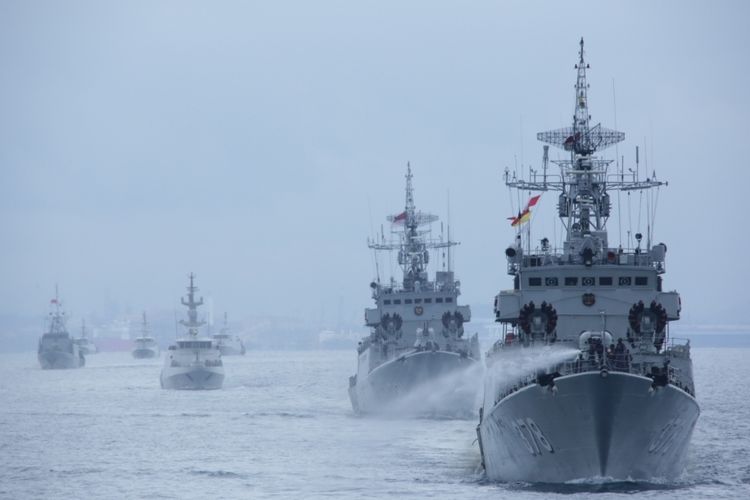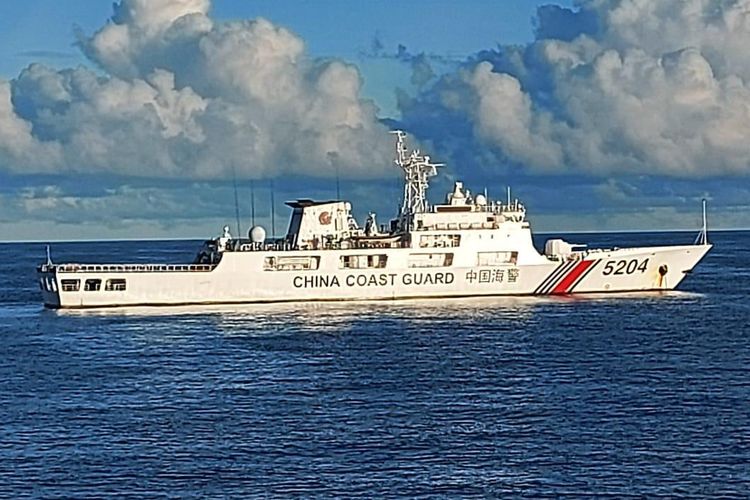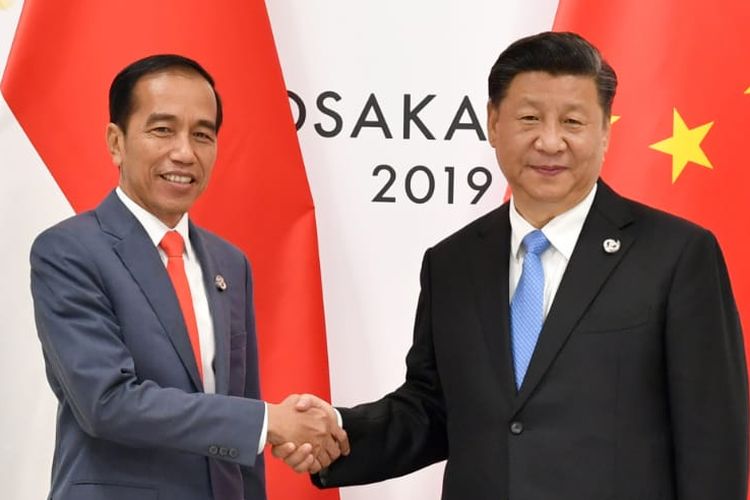
KOMPAS.com - China's new law allowing its coast guard to “open fire” on foreign vessels is causing serious anxiety in the Philippines, Vietnam and Japan. The move may help China to create a quasi-military presence even in sea areas where its navy is absent, analysts say.
The Philippines, one of several countries with competing claims to portions of the South China Sea, has lodged a formal protest describing the law as "a verbal threat of war.”
Japanese Defense Minister Nobuo Kishi has said that Japan holds “major doubts” about the law and regards it as “absolutely unacceptable.”
The law gives China’s coast guard, technically meant for policing the seas, authority to board and inspect foreign vessels in waters claimed by China and to demolish any structures built on Chinese-claimed reefs.
Also read: Foreign Ships Continue Illegal Fishing in Indonesia's North Natuna Sea
The coast guard has also been authorized to create temporary exclusion zones “as needed” to stop foreign vessels and personnel from entering Chinese-claimed waters.
Implications for others
The move has implications for Vietnam, Malaysia, Indonesia and the Philippines, all of which have long-standing claims to portions of the South China Sea. China claims jurisdiction over almost all of the resource-rich and strategically important body of water.
“It is not only about Taiwan and the South China Sea, but also about the territorial claim it holds against Japan over the Senkaku (Diaoyu) Islands in the East China Sea,” Yoichiro Sato, professor at the Ritsumeikan Asia Pacific University in Japan, told VOA.
 Indonesian Navy ships on the South Natuna Sea, Wednesday (25/11/2020)
Indonesian Navy ships on the South Natuna Sea, Wednesday (25/11/2020)Collin Koh Swee Lean, research fellow at the Institute of Defense Studies in Singapore, said the new law gives Beijing a certain legal cover for its actions in the South China Sea.
It also feeds into Beijing’s portrayal of China as a party which tries to promote maritime stability by relying on its coast guard instead of using its navy.
Given the timing of the law, there is also a debate on whether Beijing is trying to test the resolve of the new U.S. administration of President Joe Biden to stand up for countries in and around the South China Sea and the East China Sea.
“Seeking to drive a wedge between Washington and its regional allies, Beijing has thrown a gauntlet to the new Biden administration,” said Mohan Malik, visiting fellow at the Near East South Asia Center for Strategic Studies of the U.S. Department of Defense.
 A Chinese Coast Guard vessel escorted out of the Exclusive Economic Zone by Indonesian maritime forces off the Riau Island, Monday (14/9/2020)
A Chinese Coast Guard vessel escorted out of the Exclusive Economic Zone by Indonesian maritime forces off the Riau Island, Monday (14/9/2020)Also read: Indonesian Maritime Forces Intercept China Coast Guard Vessel in North Natuna Sea
“Beijing's deployment of bigger and more powerful ‘coast guard’ ships in the South China Sea for ramming purposes indicate a serious escalation in the maritime disputes,” he said.
“It also shows Beijing's growing confidence in escalation control as China ups the ante against its smaller and weaker neighbors.”
Zhiqun Zhu, chair of the Department of International Relations at Bucknell University, does not think enactment of the new law was related to the change of government in Washington.
“I think the timing of the passage of this new law is unfortunate, but I don't think it was designed to test the Joe Biden administration,” he said.
“The new law is meant to follow international conventions, not aimed at a particular country or to provoke the Biden administration. China needs to allay external concerns about the new law by clearly explaining its intentions.”
Also read: Indonesia Will Not Provide Any Bases for Other Countries
Sato of Ritsumeikan Asia Pacific University added, “It probably was already on a long-term trajectory of China's list of 'things-to-do' to upgrade its lawfare (war through legal means).”
China's second navy
Dubbed as China’s second navy, the coast guard has a fleet of 130 large patrol ships more than 1,000 tons in size and is the biggest coast guard in the world, according to a 2020 report by the U.S. Department of Defense. The overall capacity has more than doubled from 60 ships in 2010.
Most of the new ships are equipped with not only helicopter facilities and water cannon but also 30 mm and 76 mm guns. The Chinese coast guard can also call on 70 ships of more than 500 tons for more limited offshore operations.
One of the issues being debated is how the United States, which has a strong naval presence in the area, would react if the Chinese coast guard opened fire on a foreign vessel in the South China Sea.
One day after Manila filed the protest against the new Chinese law, U.S. Secretary of State Antony Blinken pledged support to the Philippines in the event of armed attacks in the South China Sea.
 Indonesian President Joko Widodo and Chinese President Xi Jinping during a bilateral meeting at the 2019 G20 summit in Osaka, Japan on Friday, (29/6/2019)
Indonesian President Joko Widodo and Chinese President Xi Jinping during a bilateral meeting at the 2019 G20 summit in Osaka, Japan on Friday, (29/6/2019)Also read: President Jokowi and President Xi Jinping to Bolster Indonesia-China Ties
“It seems the U.S. is encouraging the Philippines to clash with China,” said the Beijing-controlled Global Times newspaper.
“But will the U.S. really come to the Philippines' rescue when there is an armed conflict? Manila should be wise enough to see through the U.S. tricks, not playing as cannon fodder of the U.S.'s South China Sea policy.
"It's the Philippines that will bear the bitter consequences when there is an armed clash with China,” the newspaper added.
Collin Koh said the Chinese move may prompt countries in the South China Sea region to revisit their own legislation as a countermeasure.
“Regional countries will seek to engage each other and with external parties in an attempt to foster peace and stability in the SCS,” he said.
Simak breaking news dan berita pilihan kami langsung di ponselmu. Pilih saluran andalanmu akses berita Kompas.com WhatsApp Channel : https://www.whatsapp.com/channel/0029VaFPbedBPzjZrk13HO3D. Pastikan kamu sudah install aplikasi WhatsApp ya.
































